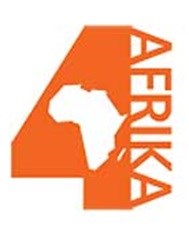Microsoft 4Afrika, Afrilabs launch 'Collaboration Challenge'

The challenge is tasking hub members with proposing and delivering an activity, process or tool that fosters collaboration within the AfriLabs network.
AfriLabs' core function is to facilitate collaboration, which requires the right platforms, mechanisms and incentives for hubs and their teams to share information and dialogue. The winning solution will receive $15,000 from Microsoft and technical support to develop it. The hubs within the AfriLabs network will be provided with a more efficient way to learn from each other's best practices and build more sustainable models.
Collaboration fuels innovation
"Collaboration fuels innovation. It encourages people to learn from each other and build on better and bigger ideas," says Annie Njenga, innovation hubs manager for Microsoft." Innovation hubs give developers a collaborative space where organisations can assist them with the technical and business skills needed to get their businesses off the ground. They bring different people together who otherwise would never have met, and create successful companies that strengthen local economies."
According to the World Bank, there are currently 90 innovation hubs across Africa. AfriLabs, a pan-African network of technology and innovation hubs, makes up 35 of these. Two of these hubs, the Co-creation hub in Nigeria and the iHub in Kenya, have been recognised as best performing models. The iHub has launched 152 successful local startups to date, encouraging the local Kenyan government to commit to establishing a tech hub in each of its 47 counties.
"The encouragement of a vibrant innovator ecosystem is essential to the growth of Africa's knowledge economy," says Fernando de Sousa, General Manager of Africa Initiatives at Microsoft. "To remain relevant and sustainable, the hubs will need to not only promote innovation, but also focus on their monetisation."
However, many hubs have been unable to find models that ensure sustainability from the initial grants that got them started. "Challenges like finding the right partners, determining the correct strategy and sustainability model, having the right team and skills in the hub, and the involvement of government can be difficult to navigate," says Tayo Akinyemi, Director at AfriLabs.
Designed to help stimulate collaboration
The Collaboration Challenge has been designed to help stimulate collaboration and knowledge sharing within the Afrilabs network and fully leverage the knowledge, skills and resources that are available through the network and its partners.
"If you look at the success of Silicon Valley, you'll see it lies in collaboration."Research done by the Accenture Institute for High Performance pins it down to close ties among outstanding educational institutions, research organisations and businesses. "That's what we're aiming for throughout the pan-African network," says Annie Njenga.
Hub members who enter the challenge will have until the 24th of October 2014 to submit their concepts and vote for their favourite ideas. All those proposing an application need to design it for the Windows platform and host it on Microsoft Azure, an open and flexible cloud platform with a single software-as-a-service offering that manages the entire lifecycle of an application. The winning individual or team will receive financial, technical and mentorship support from Microsoft to help them execute the concept.
The challenge will be run on Hylo, a social network that enables skilled collaborators to coalesce around shared intentions and challenges. Individual participants and teams can submit an 'intention' in the form of a brief description of the proposed idea. Others may respond by submitting their own ideas, requesting information from the idea's originator, or submitting an 'offer' to help develop someone else's idea. The winning concept will be the one that garners the most overall support.






















